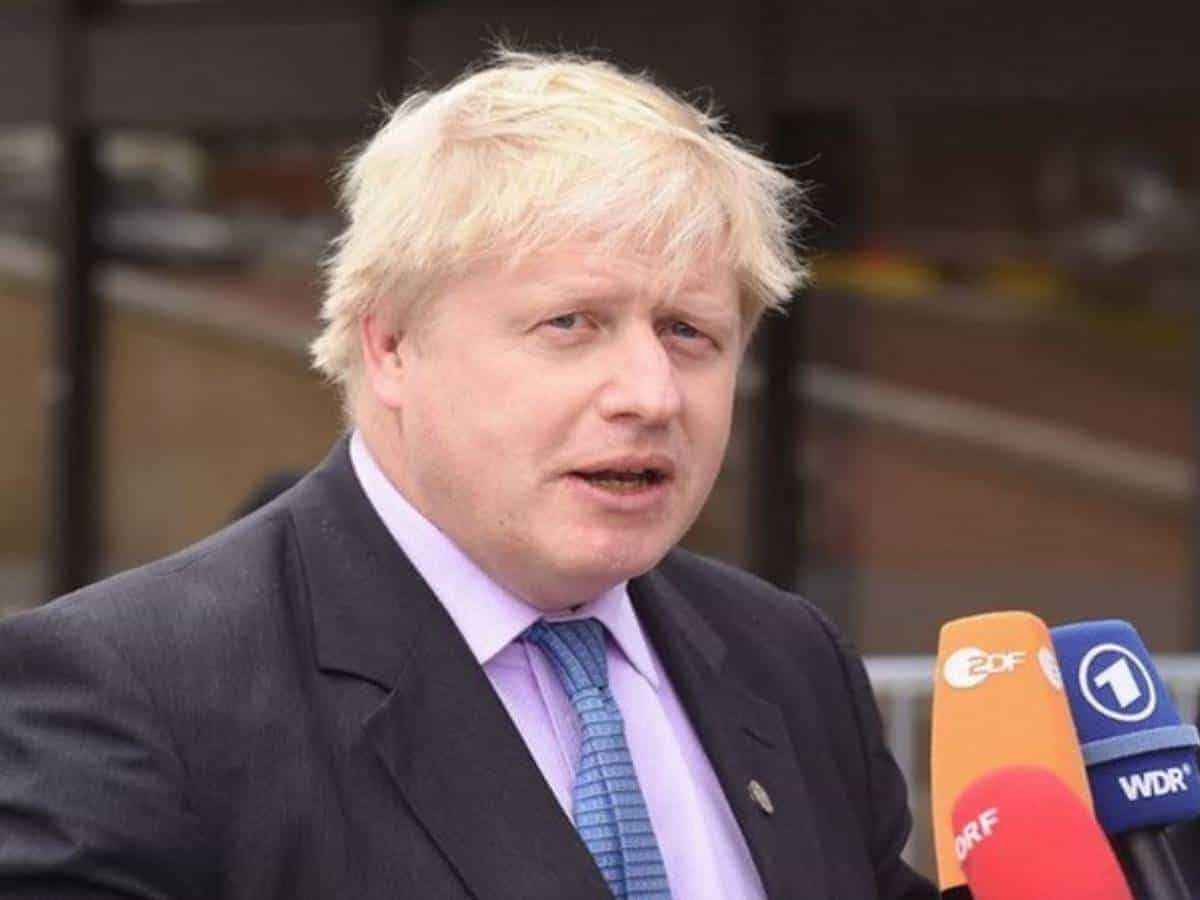London: Prime Minister Boris Johnson on Friday said the UK was looking at ways to “help and support” India, as it copes with a devastating second wave of the COVID-19 pandemic.
“We’re looking at what we can do to help and support the people of India,” Johnson told reporters while on a visit to Derbyshire on a local elections campaign trail.
It is believed this support could be in the form of ventilators or therapeutics.
The comment by Johnson, who was forced to cancel a planned visit to India this weekend amid a surge in infections, came as the “red list” COVID-19 travel restrictions came in force for India on Friday, which bans entry for travellers from India and requires British and Irish nationals and long-term UK residents returning home to undergo a compulsory 10-day hotel quarantine.
The ban comes in as Public Health England (PHE) confirmed 55 more cases of the so-called double mutant Indian variant, B.1.617, from all coronavirus cases tracked until April 14, taking the total for the Variant Under Investigation (VUI) in the UK to 132.
Experts are still studying whether any of the mutations mean the variant can be transmitted more easily, is more deadly or can evade the effectiveness of vaccines or natural immunity.
“At this point they are designated Variant Under Investigation (VUI) with a year, month, and number. Following a risk assessment with the relevant expert committee, they may be designated Variant of Concern (VOC),” PHE said of the Indian variant, designated as VUI-21Apr-01.
The last flight from India before the red list categorisation, which includes 40 countries considered high-risk zones for the spread of new variants of the deadly virus, landed at Heathrow Airport in London from Delhi on Thursday evening.
Earlier, Heathrow had confirmed that it turned down requests for at least eight additional flights that were seeking landing rights ahead of Friday’s 4am cut-off to avoid long queues and crowds building up at the airport.
Families and students who were able to make it back in time must now self-isolate at their own homes or student accommodation registered on passenger locator forms and take follow up coronavirus tests for the National Health Service (NHS) to continue tracking their results.
Anyone arriving from India from Friday must now budget for a 10-day quarantine period at a government-approved hotel quarantine facility and take two follow up PCR tests, adding approximately 2,000 pounds per person to the travel costs.
Indian students are the worst-hit by this additional requirement as they were preparing to either resume their on-campus studies at UK universities or start a new term next month.
“We have received confirmation from the Foreign, Commonwealth and Development Office that those with vignettes for valid routes that confer residency in the UK can enter the UK, even if they have no Biometric Residence Permits when they land,” reads an advisory issued by the National Indian Students and Alumni Union UK (NISAU-UK), a representative group for Indian students in the UK.
It has been fielding frantic calls and messages ever since India’s red list classification was announced in the House of Commons earlier in the week.
The group is working on steps to raise hardship requests and student discounts for the compulsory quarantine.
Meanwhile, some UK universities are also reaching out to the government to offer assistance in the quarantine process on campus to help support some of these overseas students.
Universities UK International (UUKi), a representative group for the UK’s leading universities, has said that given the government may have difficulty providing capacity, they should look at where universities have accommodation that could meet the standard of the hotel quarantine system.

